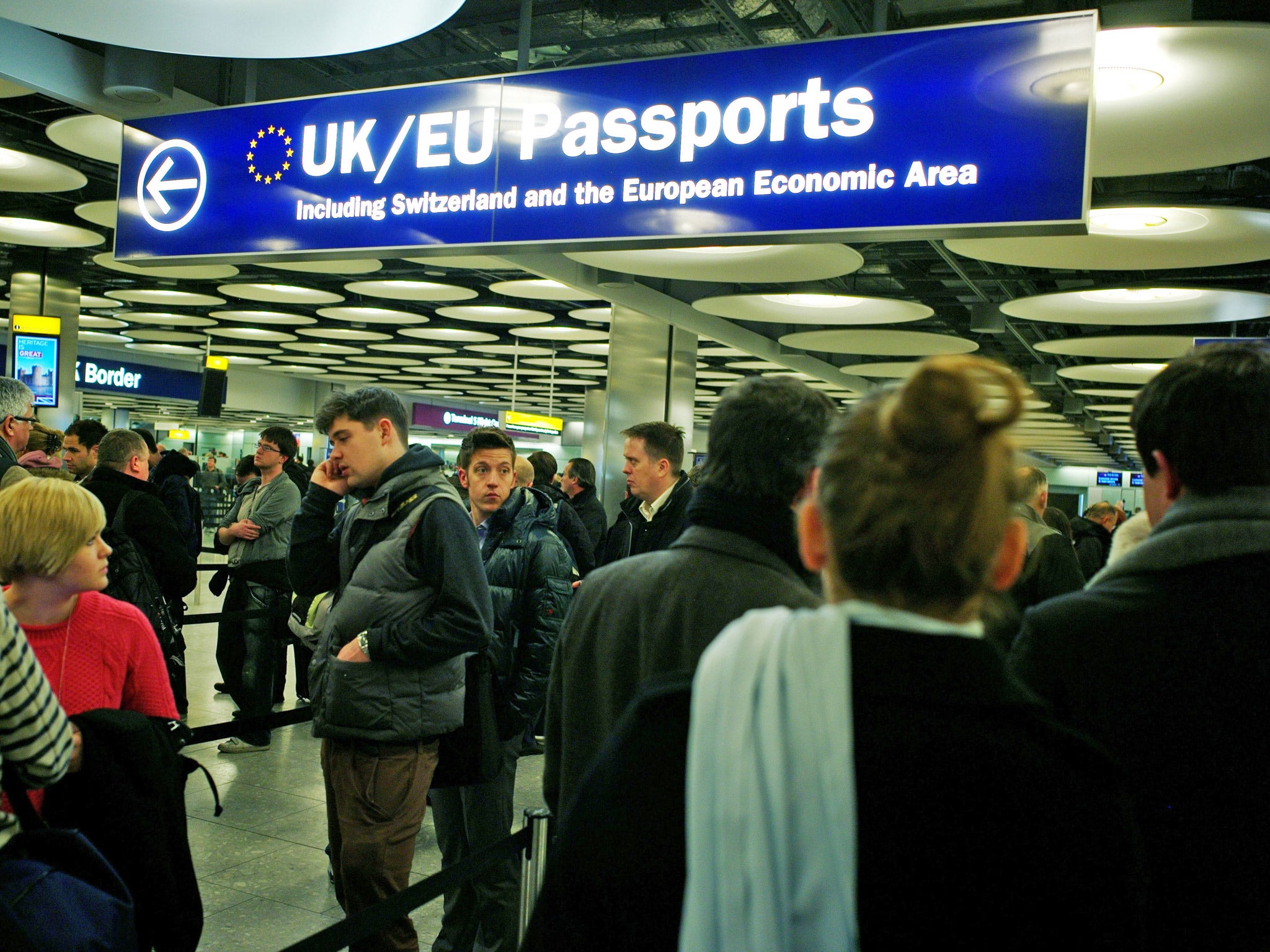EU migrants face new curbs on claiming benefits in an attempt to reduce Britain’s 'pull factor'
However, the moves are certain to be seen as an attempt to reduce the threat to the two Coalition parties from Ukip at next month’s European Parliament elections

Your support helps us to tell the story
From reproductive rights to climate change to Big Tech, The Independent is on the ground when the story is developing. Whether it's investigating the financials of Elon Musk's pro-Trump PAC or producing our latest documentary, 'The A Word', which shines a light on the American women fighting for reproductive rights, we know how important it is to parse out the facts from the messaging.
At such a critical moment in US history, we need reporters on the ground. Your donation allows us to keep sending journalists to speak to both sides of the story.
The Independent is trusted by Americans across the entire political spectrum. And unlike many other quality news outlets, we choose not to lock Americans out of our reporting and analysis with paywalls. We believe quality journalism should be available to everyone, paid for by those who can afford it.
Your support makes all the difference.Migrants from the EU are to lose their right to claim child benefit as soon as they arrive in Britain in the Government’s latest curbs on state handouts for EU nationals.
Ministers will also force unemployed EU migrants with poor spoken English to improve their language skills or face losing their right to claim jobseeker’s allowance (JSA).
The Coalition rushed in a three-month delay on claiming JSA just before Romanians and Bulgarians won the right to work in Britain from 1 January. From July, all EU migrants will need to live in the UK for three months before they can claim child benefit and child tax credits, which top up the incomes of low-earning families with children. People from outside the EU often have visa restrictions which prevent having "recourse to public funds" while in Britain.
Although ministers say the aim is to reduce Britain's "pull factor", their latest moves are bound to be seen as an attempt to reduce the threat to the two Coalition parties from the anti-EU UK Independence Party (Ukip) at next month’s European Parliament elections. Some opinion polls suggest that Nigel Farage's party could push the Conservatives into third place.
The new measures stop short of ending child benefit for EU migrants whose children do not join them in the UK and remain in their home country. Ministers still hope to halt such payments but have not yet found a way to do so without breaching EU rules. Child benefit is worth £20.30 a week for the first child and £13.40 for each additional one. Nicky Morgan, the Treasury Economic Secretary, said: "The Government is building a system that is fair and consistent, one that supports those who want to work hard. These changes send a strong message that our welfare system is not open to abuse and will deter those who think that they can move to the UK primarily to claim benefits. Making work pay is part of our long-term plan to ensure that Britain's growing economy and dynamic jobs market deliver for those who work hard and play by the rules.2
From Wednesday, new claimants eligible for JSA will no longer have routine access to interpretation services at Jobcentre Plus offices, which currently cost taxpayers £3m a year. From 28 April, their spoken English will be tested in England. If claimants' language is found to be a barrier to looking for work, they will be expected to improve it within six months. If they refuse to get training or do not "make an effort", they could have their benefit stopped or cut.
Government sources said ministers want to "call time" on subsidising migrants who do not learn English, which hinders their ability to find a job and integrate into British life. Census figures show that across England, 1.7 per cent of the population have either poor or no spoken English - rising to 9 per cent in some London boroughs. Some 5 per cent of the population does not speak English as a first language, including 9 per cent in London, but this does not take account of an ability to speak it as their second language.
The curbs on interpretation services is expected to reduce spending. The Department of Work and Pensions handles around 400,000 interpretation queries each year and provides the service for more than 140 languages. The most common being interpreted are Slovak, Polish and Czech.
Jobcentre Plus staff will still have the discretion to allow interpreters to be used to protect vulnerable claimants. Benefit fraud investigations will still use translation services. The changes will not affect existing claimants or people who are deaf, hard of hearing or who have a speech impediment.
Join our commenting forum
Join thought-provoking conversations, follow other Independent readers and see their replies
Comments